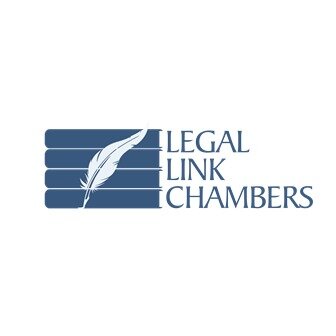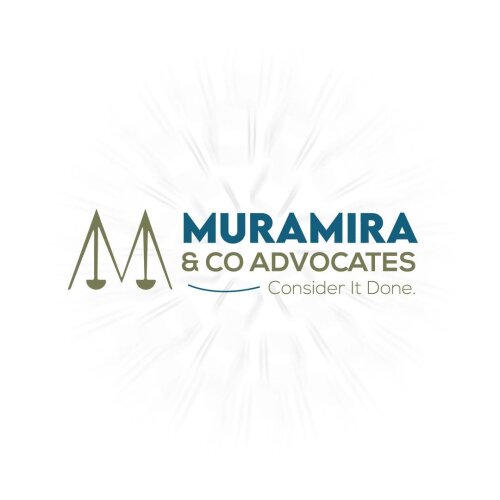Best Debt & Collection Lawyers in Rwanda
Share your needs with us, get contacted by law firms.
Free. Takes 2 min.
Or refine your search by selecting a city:
List of the best lawyers in Rwanda
About Debt & Collection Law in Rwanda:
Debt & Collection in Rwanda refers to the legal process by which creditors can recover unpaid debts from individuals or businesses. It involves various legal mechanisms to ensure that the debts are repaid, such as court proceedings, asset seizure, or wage garnishment.
Why You May Need a Lawyer:
You may need a lawyer for Debt & Collection issues in Rwanda if you are facing a lawsuit from a creditor, need help negotiating a repayment plan, or if you are a creditor seeking to recover unpaid debts. A lawyer can provide legal advice, guide you through the legal process, and represent you in court if necessary.
Local Laws Overview:
In Rwanda, Debt & Collection laws are governed by the Civil Code, Commercial Code, and the Law on Insolvency. Creditors have legal rights to recover debts, but they must follow specific procedures outlined in these laws. It is important to understand the legal framework and procedures to navigate Debt & Collection issues effectively.
Frequently Asked Questions:
1. What are the legal rights of creditors in Rwanda?
Creditors in Rwanda have the right to pursue legal actions to recover unpaid debts, such as filing a lawsuit in court, seizing assets, or garnishing wages.
2. Can a creditor seize my property to recover a debt?
Yes, creditors in Rwanda can seize property of the debtor to recover unpaid debts. However, they must follow the legal procedures outlined in the Civil Code.
3. What is the statute of limitations for debt collection in Rwanda?
The statute of limitations for debt collection in Rwanda is 5 years, starting from the date the debt becomes due.
4. Can a creditor continue to contact me for debt collection after I have declared bankruptcy?
If you have declared bankruptcy in Rwanda, creditors are prohibited from contacting you for debt collection as per the Law on Insolvency.
5. Can I negotiate a repayment plan with my creditor instead of going to court?
Yes, you can negotiate a repayment plan with your creditor outside of court. It is advisable to seek legal advice to ensure the terms are fair and legally binding.
6. How can a lawyer help me with debt collection in Rwanda?
A lawyer can advise you on your legal rights, represent you in court proceedings, negotiate with creditors on your behalf, and ensure that debt collection procedures are conducted lawfully.
7. What are the consequences of failing to repay a debt in Rwanda?
Failing to repay a debt in Rwanda can result in legal actions by creditors, such as asset seizure, wage garnishment, or even bankruptcy proceedings.
8. Can I dispute a debt that I believe is not valid?
Yes, you have the right to dispute a debt that you believe is not valid. You can seek legal advice to challenge the debt and prove its invalidity through legal means.
9. Are there any consumer protection laws in Rwanda related to debt collection?
Yes, Rwanda has consumer protection laws that regulate debt collection practices to ensure fair treatment of debtors by creditors. It is important to be aware of your rights as a consumer when dealing with debt collection.
10. How can I file a complaint against a creditor for unfair debt collection practices?
If you believe a creditor has engaged in unfair debt collection practices, you can file a complaint with the Rwanda Consumer Rights Protection Authority or seek legal advice to explore legal actions against the creditor.
Additional Resources:
For additional resources on Debt & Collection in Rwanda, you can refer to the Rwanda Bar Association, Rwanda Commercial Court, and the Rwanda Consumer Rights Protection Authority for guidance and support.
Next Steps:
If you require legal assistance with Debt & Collection issues in Rwanda, it is advisable to consult with a qualified lawyer who specializes in debt collection laws. They can provide personalized legal advice and represent you in legal proceedings to protect your rights and interests.
Lawzana helps you find the best lawyers and law firms in Rwanda through a curated and pre-screened list of qualified legal professionals. Our platform offers rankings and detailed profiles of attorneys and law firms, allowing you to compare based on practice areas, including Debt & Collection, experience, and client feedback.
Each profile includes a description of the firm's areas of practice, client reviews, team members and partners, year of establishment, spoken languages, office locations, contact information, social media presence, and any published articles or resources. Most firms on our platform speak English and are experienced in both local and international legal matters.
Get a quote from top-rated law firms in Rwanda — quickly, securely, and without unnecessary hassle.
Disclaimer:
The information provided on this page is for general informational purposes only and does not constitute legal advice. While we strive to ensure the accuracy and relevance of the content, legal information may change over time, and interpretations of the law can vary. You should always consult with a qualified legal professional for advice specific to your situation.
We disclaim all liability for actions taken or not taken based on the content of this page. If you believe any information is incorrect or outdated, please contact us, and we will review and update it where appropriate.
Browse debt & collection law firms by city in Rwanda
Refine your search by selecting a city.












